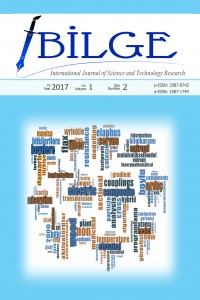Evaluation of Electric Field Pollution from 132 kVA Power Transmission Lines to Proximity of Infrastructures in Ibadan, Nigeria
Abstract
Electrical
Power Transmission Lines (PTL) generate electromagnetic field while carrying
electrical energy from power generating stations to the electrical power distribution
systems. Due to increase in population, infrastructures are being built close
to or under the power lines; thus, violating the range of the tower setback. This exposes nearby residence to electric
field pollution. In this paper, we present an evaluation of the electric field
pollution from the 330/132kVA power transmission lines in Ibadan (Ido local
government), Oyo state Nigeria. we measured the electric field of the power
transmission line of the closest proximity
to the nearest infrastructure using electromagnetic tester (model 3120-EN-00).
Evaluation of spatial distance between the nearest infrastructure and the
transmission lines was done by obtaining the spatial position of the
transmission tower and the infrastructure using Global Positioning System (GPS) receiver (model GPSMAP 78 Series) satellite system. The sets
of data obtained were processed in ARCGIS environment and the distance from the
transmission tower to the nearest infrastructure was obtained. Also, the range
between the tower with reference to a particular tower was obtained using
analytical techniques. The ICNIRP standards were used to evaluate the
result. The results showed that the electric field strength is below the
standard limit. Regulatory bodies like the
Power Holding Company of Nigeria (PHCN), Occupational Health and Safety Code (OHSC) and
Lagos State Urban and Regional Planning (LSURP) regulations legislated a minimum setback of
every infrastructures proximity to power lines. These regulations were used to
evaluate infrastructures violating the rules. 12.5% of the infrastructures
assecible complied with the PHCN regulation, 56.85% complied with the LSURP
regulation and 78.12% compiled with the OHSC regulation.
Details
| Subjects | Electrical Engineering |
|---|---|
| Journal Section | Research Articles |
| Authors | |
| Publication Date | November 30, 2017 |
| Acceptance Date | October 5, 2017 |
| Published in Issue | Year 2017 Volume: 1 Issue: 2 |


